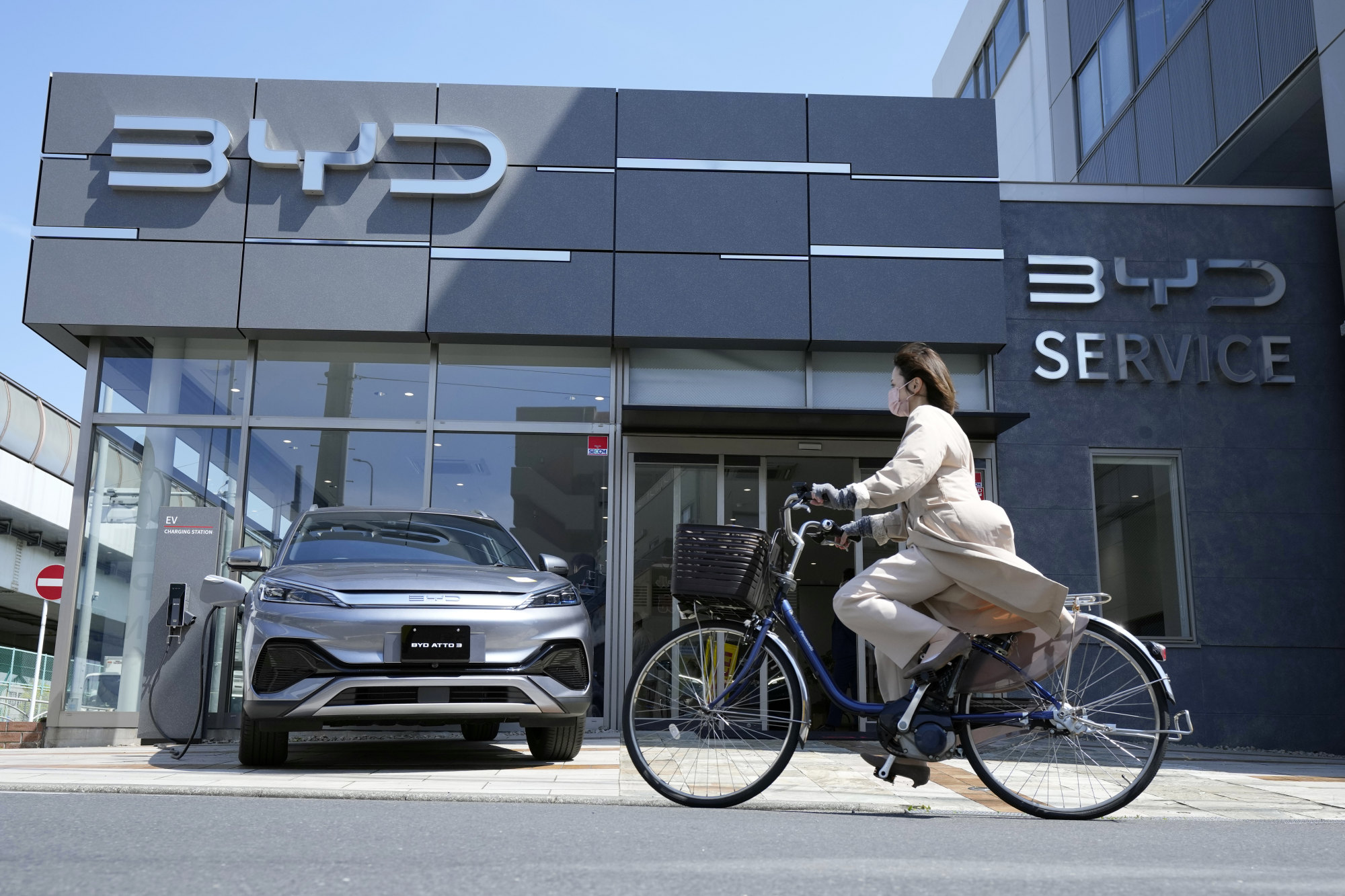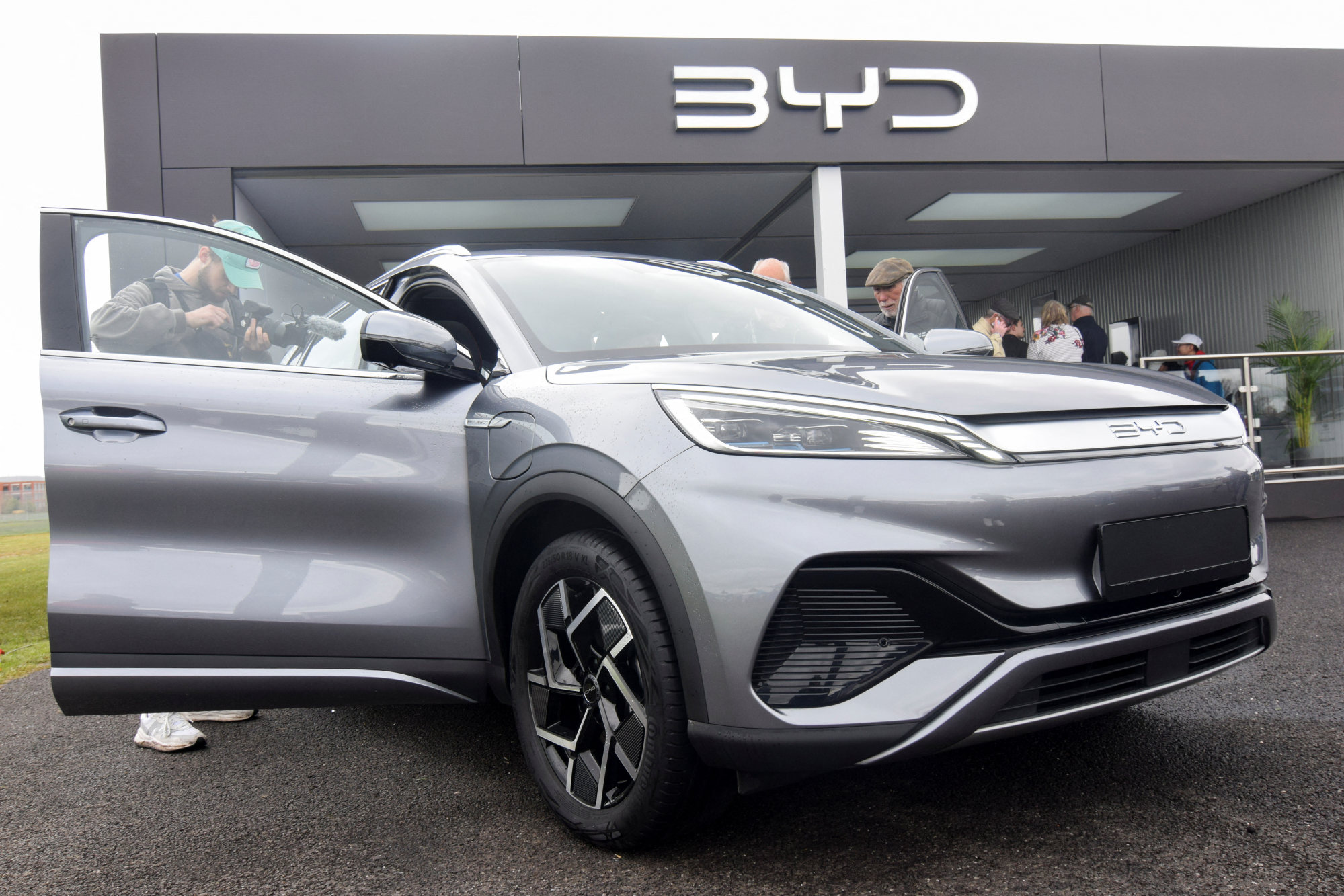
BYD to invest US$620 million in industrial complex in northeastern Brazil, to produce affordable vehicles and batteries for local markets
- The US$620 million Brazilian project, comprising three plants, will start operations in the second half of 2024
- The plants will manufacture chassis for buses and electric trucks, assemble EVs, and produce lithium iron phosphate, a key material for EV batteries
The Shenzhen-based carmaker backed by Warren Buffett’s Berkshire Hathaway said in a statement on Wednesday that the project, comprising three plants, will start operations in the second half of 2024.
The complex will be built on land previously occupied by a Ford plant in the Camacari industrial estate. Ford closed the factory in 2021.
BYD will build one plant for production of chassis for buses and electric trucks.

The second plant will assemble EVs, with an annual capacity of 150,000 units, while the third one will produce lithium iron phosphate, a key material for EV batteries.
“Construction of the complex will help promote use of EVs in the local market,” Stella Li, BYD’s executive vice-president and head of Americas operations, said in the statement.
Denza, BYD’s JV with Mercedes-Benz, launches second EV
She added that the plants, expected to create 5,000 local jobs, will reinforce BYD’s aggressive expansion in South America.
BYD shifted 253,046 cars last month, a 5.3 per cent increase over the 239,092 cars delivered in May.
In the first half of 2023, BYD handed 1.26 million vehicles to customers, almost double the figure a year ago.
“BYD’s internationalisation drive over the past few months is more impressive because it is eyeing a leading position worldwide,” said Peter Chen, an engineer with car-parts maker ZF TRW in Shanghai. “Its key markets around the global remain in developing economies in Southeast Asia and Latin America,” he added, referring to smaller, price-sensitive markets where the governments do not offer generous subsidies.
In March, BYD started construction of a plant in Thailand, its first in Southeast Asia. The factory will have an annual capacity of 150,000 EVs when it is completed next year.
It is also building an assembly in Uzbekistan.

Meanwhile, BYD has been tapping overseas markets by exporting Chinese-made vehicles to countries such as India and Australia.
On Monday, Shenzhen Denza New Energy Automotive, a venture between BYD and Mercedes-Benz, launched a mid-sized sport utility vehicle in China to take on premium models assembled by the likes of BMW and Audi.
Exports of Chinese EVs are expected to almost double this year, helping the country overtake Japan as the biggest car exporter worldwide, benefiting from mainland carmakers’ growing manufacturing heft and value-for-money product ranges.
China’s EV shipments are expected to reach 1.3 million units this year, according to an estimate by market research firm Canalys, compared with 679,000 units last year as reported by the China Association of Automobile Manufacturers (CAAM).
They would contribute to a surge in combined exports of petrol and battery-powered vehicles to 4.4 million units from 3.11 million last year, the research firm said. Japan’s exports last year totalled 3.5 million units, according to official data.

